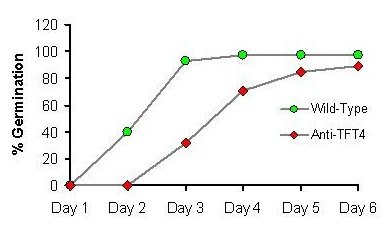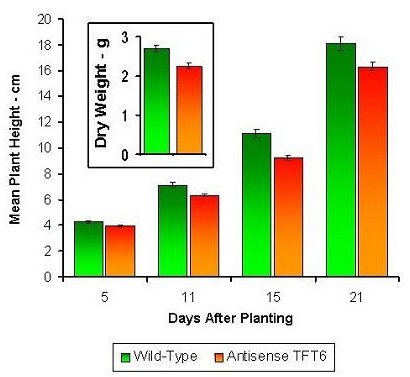|
|
|
The observation that tomato 14-3-3 genes show characteristic patterns of transcriptional regulation led us to investigate the question of whether or not there might be specific biological roles for these genes. To this end, we produced transgenic tomato plants in which the expression of 14-3-3 genes TFT3, TFT4 and TFT6 were suppressed by antisense RNA. A general observation from these experiments was that suppression of individual 14-3-3 isoforms did not lead to major phenotypic abnormalities in the growth and development of the transgenic plants. However, detailed systematic investigation revealed subtle phenotypes for plants with antisense TFT4 or TFT6 genes.
|
|
after which, their growth compared to wild-type plants is normal. |

Differences between the germination rates of wild-type and antisense TFT4 tomato plants. The points on the graph indicate the percentage of seeds planted in which the radicle had emerged from the seed coat (n = 100 seeds). This trend is reproducible in several different batches of seed from different generations of plants. |
|
development, including reduced height, leaf number and dry weight. |

Differences between the heights of wild-type and antisense TFT6 tomato plants during the 3 weeks after planting. At the end of the 3 week period, plants were harvested for dry-weight measurements. |